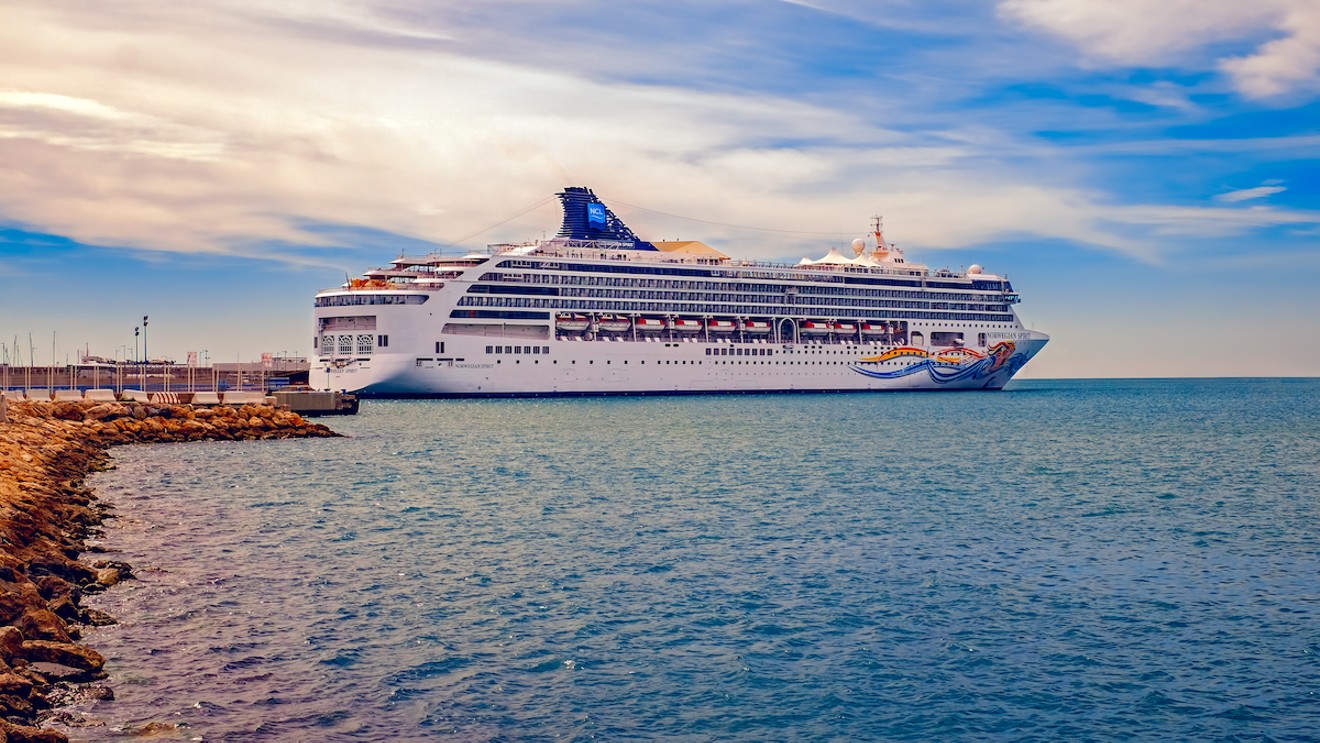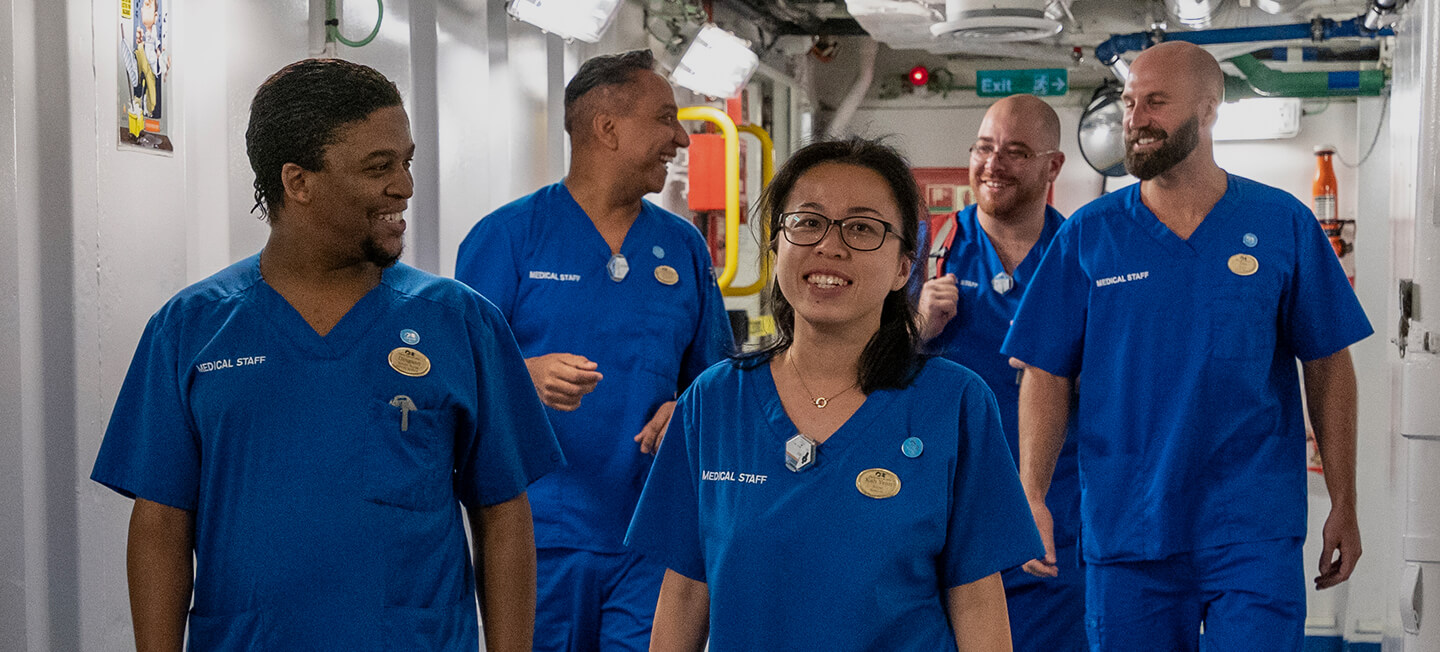
Many major cruise lines continue to operate despite the State Department's cruise ship warnings. The travel advisory was published late Sunday evening in response to a coronavirus virus outbreak on cruise ships.
The State Department stated in a statement that Americans should never travel on cruise vessels as they are more likely than others to contract the virus. According to the agency, passengers on these hulking vessels are often more closely grouped than in other modes of transportation.
Additionally, the agency advised that cruise travelers may face restrictions on international travel at their ports of calls and that they would not be able rely on government repatriation flight options if local authorities decides to quarantine them.
The CDC has been advising against travel to areas affected by coronavirus or other threats for the majority of the time. But with this new outbreak, the CDC is taking a more hands-on approach.
It's important to remember that there are a variety of ways to protect yourself against COVID-19 infection, according to the CDC. These are:
* Avoid situations that increase your risk of developing more severe diseases, such as crowds and long flights (e.g. from Miami to San Francisco).

It is important to avoid working on or visiting cruise ships affected by this virus.
The CDC advises you to get in touch with the company that you're booking a cruise to learn if they have any plans for taking precautions.
If they do, they should let you know so you can make other arrangements to get off the ship if necessary.
You should also use alcohol-based hand sanitizer frequently to avoid spreading the virus.
Some cruise companies have adopted more stringent procedures to ensure crew and passenger safety during outbreaks.
The CDC still recommends against any cruise ship traveling, especially for patients with chronic diseases, due to the increased risk of COVID-19-related infections.
This is a crucial issue. We urge you to follow CDC recommendations to ensure your safety and health while traveling abroad.

Numerous health organizations offer free vaccinations and support to travelers to keep them healthy during the epidemic. The CDC recommends that travelers have their vaccines up-to-date before they board a ship.
The CDC has some great tips for keeping yourself healthy, including:
1. After going to the toilet, after eating or touching your skin, coughing or wheezing, as well as after handling surfaces that may have germs on them.
2. Wear clean, loose clothing and shoes when you are outside of your cabin; and 3. Avoid sharing towels or other personal possessions with anyone.
4. You can report a lost passport to the nearest U.S. consulate and arrange for a replacement passport.
5. Think about renting an apartment or private room onboard the ship instead of sharing one.
FAQ
What do you get when you cruise?
Have fun is the most important thing. You don't have to do it all. Just enjoy the moment.
You will find many activities for everyone. If you are feeling bored, there will always be someone who wants to chat with you.
Cruising should be about relaxation and having fun. Cruising is not about seeing as many places as possible.
There are many types of cruises available. They range from shorter trips across Europe to more extended journeys across the Pacific. The length of your trip will depend on the activities you plan to accomplish.
Do I need to dress up for a cruise?
No, you don't need to wear formal attire or anything fancy. Simply be comfortable and open to relaxation.
Are cruise ships safe?
Yes, cruise ship travel is very safe. The majority of cruise ships are outfitted with the most advanced technology and security systems. The safety regulations for cruise ships are very strict. All crew members are subject to extensive training and background checks. All passengers are checked upon their arrival onboard the ship. Some cruise lines require passengers' proof of immunization against certain diseases. If you are ever concerned about your safety, please contact the customer service department at the cruise line.
What is a cruiseship vacation like?
The best way to describe a cruise ship vacation is as an all-inclusive experience where you are provided for at all times. You have access to everything, from entertainment, restaurants, spas, activities, and excursions. It's more than just a place where you can sleep and eat. Only thing you will need is your sense for adventure!
Can I bring my pet on board?
Most cruise lines allow pets to travel aboard. There are limitations. First, ensure your pet's health is sufficient to travel. Pets too sick to travel should be kept away from the plane. A second rule is that service dogs cannot be brought on board. Service dogs are trained for disabled persons. You can't bring any type or dangerous animal to board.
Statistics
- If you're traveling alone, you may also need to factor in a single supplement, adding up to as much as 100% of the cruise fare. (travel.usnews.com)
- You'll need to budget around $80 per person per day for this option – and an additional 18% gratuity. (travel.usnews.com)
- You can save 15% off the total price if you book in advance of your trip. (travel.usnews.com)
- The line estimates savings of 50% when you purchase this bundle. (travel.usnews.com)
External Links
How To
How to avoid becoming seasick during a cruise
A hat can help prevent seasickness when you cruise. By keeping the head in a fixed position, a wide-brimmed hat prevents motion sickness.
A hat also keeps water off the face, reducing the air's moisture. People who feel dizzy from breathing in moist air can breathe easier.
Another tip: Drink lots of fluids. Avoid alcohol or caffeine. These drinks dehydrate the liver, causing fluid to pool in the stomach. The amount of salt in the bloodstream can be reduced by drinking enough liquids. The body retains water due to salt, which can lead to nausea.
Eat something salty if your stomach is feeling nauseous. Salty foods can cause your stomach to produce more hydrochloric acids, which aids in breaking down food particles.
There are medication options available to help seasickness. You should be aware that side effects can include dry mouth and constipation as well as headaches.